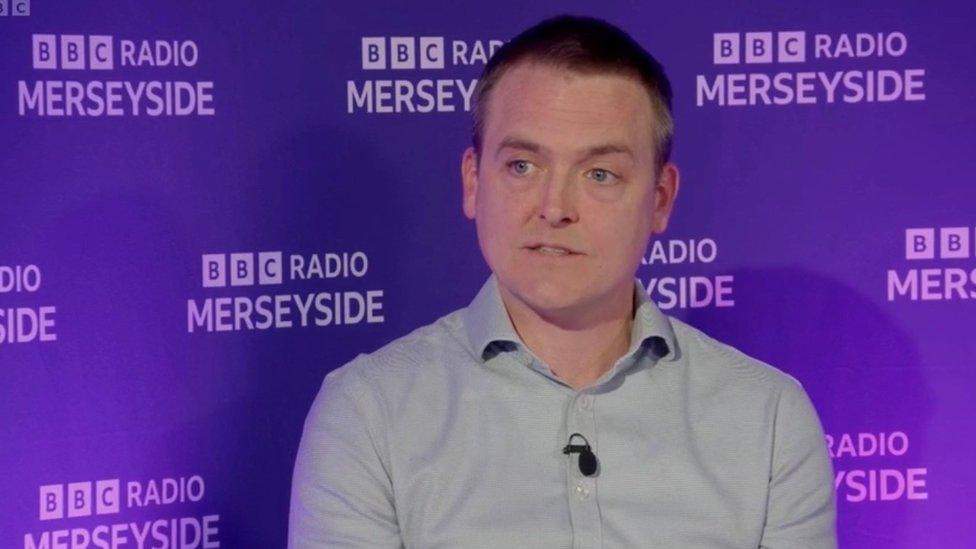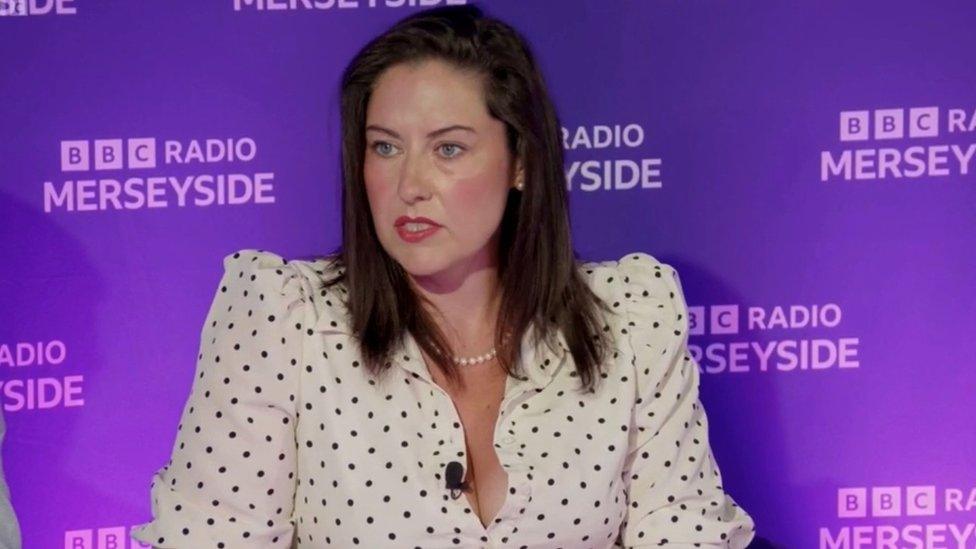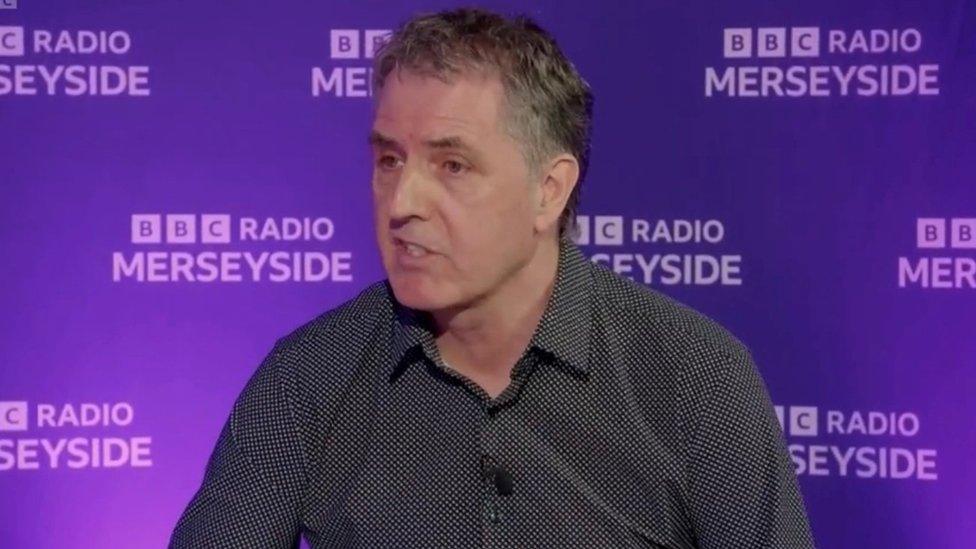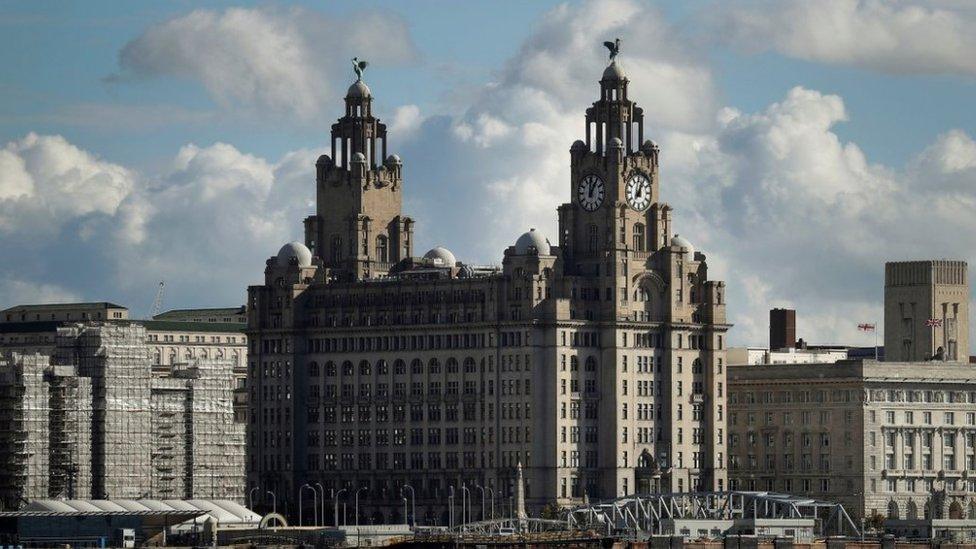Liverpool City Region metro mayor debate: Five things we learned
- Published
People across Merseyside and Halton will head to the polls on 2 May to elect the next mayor of the Liverpool City Region.
The role, created in 2017, is designed to provide a closer link between the city region and central government, and to enable more local decision-making.
BBC Radio Merseyside hosted a debate between four of the candidates on 17 April.
You can read more about all of the candidates here.
All five candidates will be appearing on BBC Radio Merseyside in the week beginning 22 April.
Here are five things our political reporter, Claire Hamilton, learned from the Liverpool City Region metro mayor debate.
1. Candidates competing to become the Liverpool City Region's metro mayor all agreed on one thing: more needs to be done to help the public understand the role
In a debate broadcast live on BBC Radio Merseyside and on iPlayer, four of the candidates standing for election on 2 May disagreed on plenty of subjects - from transport to the way the mayor is held accountable - but all four said they felt there was a lack of understanding about what the metro mayor is responsible for.
Labour's Steve Rotheram, who has held the post since it was created in 2017, said he was frustrated that even the other candidates did not seem to grasp the nature of the powers of the job.

Green candidate Tom Crone and three other candidates answered questions from the BBC Radio Merseyside audience
The metro mayor is the most senior politician representing the Liverpool City Region.
They oversee decisions relating to transport, skills, regeneration and housing.
Questions from the BBC Radio Merseyside audience and the public on the streets of the city region revealed many of the region's 1.6 million people do not know where the mayor's powers lie.
2. There was surprising support for Labour's candidate from his Conservative opponent
Jade Marsden praised Steve Rotheram for the work he has done on the innovation zone in Daresbury in Halton, home to several high tech companies and research facilities including the Hartree Centre, where one of the UK's supercomputers is kept.

Conservative candidate Jade Marsden praised her opponent
She said he had done "a great job". Not something you hear every day!
3. All candidates agree that the tidal power of the Mersey is worth harnessing
This had been a topic of debate for decades on Merseyside - years before the role of metro mayor was created.
The plan is for a tidal barrage to use the rivers tides to power homes and businesses.
All candidates seemed to think it was a good idea - but the government of the day will need to commit millions of pounds to it - and so far neither the Conservatives or Labour nationally have said they would stump up the cash.
4. Steve Rotheram is not promising a bendy bus
He clashed with his Liberal Democrat opponent Rob McAllister-Bell over plans to introduce a glider bus serving Liverpool's airport and football stadia.
Steve Rotheram had initially branded the rapid transit system in his election campaign launch as a "trackless tram".

Labour's Steve Rotheram has held the post of metro mayor since it was created in 2017
The system would be similar to Belfast's rapid transit system, which is a bus that uses segregated lanes on the city's roads.
Mr McAllister-Bell branded the plan "mutton dressed as tram".
Steve Rotheram said he had never claimed the system was a "bendy bus" and accused his opponent of "playground tactics".
5. It is a Liverpool-centric contest
Three of the candidates (listed here in alphabetical order according to surname) - Tom Crone, Jade Marsden and Rob McAllister-Bell - are based in Liverpool.

Liberal Democrat Rob McAllister-Bell branded a "bendy bus" plan as "mutton dressed as tram"
Steve Rotheram was a Liverpool MP.
Only Ian Smith the Independent candidate lives outside the city (he is from Bootle in Sefton).
This naturally meant that the candidates tended to focus on the city, rather than the other boroughs. Yes, St Helens got a mention - but it was for the broken toilet in one of the train stations!
There is still work to do for whoever wins the election on the 2nd of May to convince people living in Runcorn, Kirkby and Southport that the metro mayor represents them.

Listen to the best of BBC Radio Merseyside on Sounds and follow BBC Merseyside on Facebook, external, X, external and Instagram, external? You can also send story ideas to northwest.newsonline@bbc.co.uk, external
- Published17 April 2024
